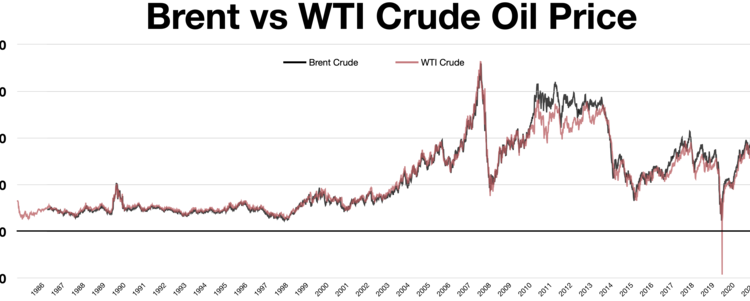Luxury carmakers struggle to maintain foothold in a shifting Chinese landscape.
- Aston Martin warns of profit hit due to slump in Chinese market.
- European carmakers increasingly reliant on China for luxury vehicle sales.
- China’s property crisis undermines consumer confidence and luxury spending.
- Local Chinese manufacturers offer competitive luxury electric vehicles.
- European carmakers face challenges from rising production costs and tariffs.
- Volkswagen’s operations heavily impacted by Germany’s energy crisis.
- Stellantis also predicts profit decline due to reduced Chinese demand.
- Supply chain issues further complicate the situation for European manufacturers.
Aston Martin, renowned for its luxury sports cars, has recently issued a profit warning, joining other major European car manufacturers like Volkswagen, Mercedes-Benz, and BMW in expressing concerns over declining demand in China. This downturn is largely attributed to a significant slump in the Chinese property market, which has negatively impacted consumer spending. As European automakers have increasingly relied on the Chinese market, where luxury cars are seen as status symbols, the recent economic challenges pose a serious threat to their profitability.nnThe Chinese property crisis, sparked by new government regulations aimed at controlling heavily indebted developers, has led to a loss of consumer confidence. With over 70% of household wealth tied up in property, the slowdown has particularly affected luxury spending, impacting everything from high-end handbags to expensive cars. Additionally, new rules from the Chinese Communist Party targeting ‘wealth flaunting’ behaviors on social media are expected to further dampen demand for luxury goods.nnCompounding these issues, lower-cost Chinese manufacturers like NIO, Geely, and BYD are producing luxury electric vehicles at significantly lower prices, attracting Chinese consumers who are increasingly favoring local brands. Analysts note that younger consumers are particularly drawn to the innovative technology and entertainment features offered by these domestic manufacturers, leaving European brands struggling to keep pace.nnEuropean carmakers have also faced rising production costs, with prices increasing by 41% from 2019 to 2023. This price hike, coupled with the competitive advantage of Chinese manufacturers, has made it difficult for European brands to maintain their market share. Furthermore, the widespread adoption of electric vehicles in China has diminished the technical edge that European automakers once held.nnThe situation is further complicated by the energy crisis in Europe, particularly in Germany, where Volkswagen is heavily reliant on local manufacturing. The rising energy costs following the invasion of Ukraine have put additional pressure on European manufacturers, with Volkswagen even considering factory closures for the first time in its history.nnStellantis, while less dependent on the Chinese market, has also warned of profit declines due to the slowdown in demand. Overall, European carmakers, including Aston Martin, Porsche, and BMW, are grappling with a combination of supply chain issues and declining demand in China, making the future uncertain for these luxury brands.·
Factuality Level: 7
Factuality Justification: The article provides a detailed analysis of the challenges faced by Aston Martin and other European car manufacturers in the Chinese market, supported by relevant data and expert opinions. However, it contains some tangential information and could benefit from a more concise presentation. While the overall information is factual, the inclusion of some opinions and potential bias in the analysis slightly detracts from its objectivity.·
Noise Level: 8
Noise Justification: The article provides a detailed analysis of the challenges faced by European car manufacturers, particularly in relation to the Chinese market. It discusses various factors affecting demand, including economic conditions, consumer preferences, and competitive pressures from local manufacturers. The article supports its claims with data and expert opinions, while also holding powerful companies accountable for their market strategies. It remains focused on the topic without diverging into unrelated areas.·
Public Companies: Volkswagen (XE:VOW), Mercedes-Benz (XE:MBG), BMW (XE:BMW), Stellantis (STLA), Aston Martin (UK:AML), NIO (NIO), Geely (HK:175), BYD (CN:002594)
Key People: Adrien Brasey (Analyst at AlphaValue), Javier Rodríguez González (Analyst at KPMG)
Financial Relevance: Yes
Financial Markets Impacted: The article discusses the impact of the Chinese market slump on European car manufacturers, particularly Aston Martin, Volkswagen, and others, affecting their profits and market share.
Financial Rating Justification: The article highlights significant financial implications for major car manufacturers due to changing consumer behavior in China, economic downturns, and competitive pressures from local manufacturers, making it highly relevant to financial topics.·
Presence Of Extreme Event: No
Nature Of Extreme Event: No
Impact Rating Of The Extreme Event: No
Extreme Rating Justification: The article discusses economic challenges faced by European car manufacturers, particularly due to a downturn in the Chinese market, but does not describe an extreme event that occurred in the last 48 hours.·
Move Size: 15%
Sector: Automotive
Direction: Down
Magnitude: Large
Affected Instruments: Stocks
 www.marketwatch.com
www.marketwatch.com 





